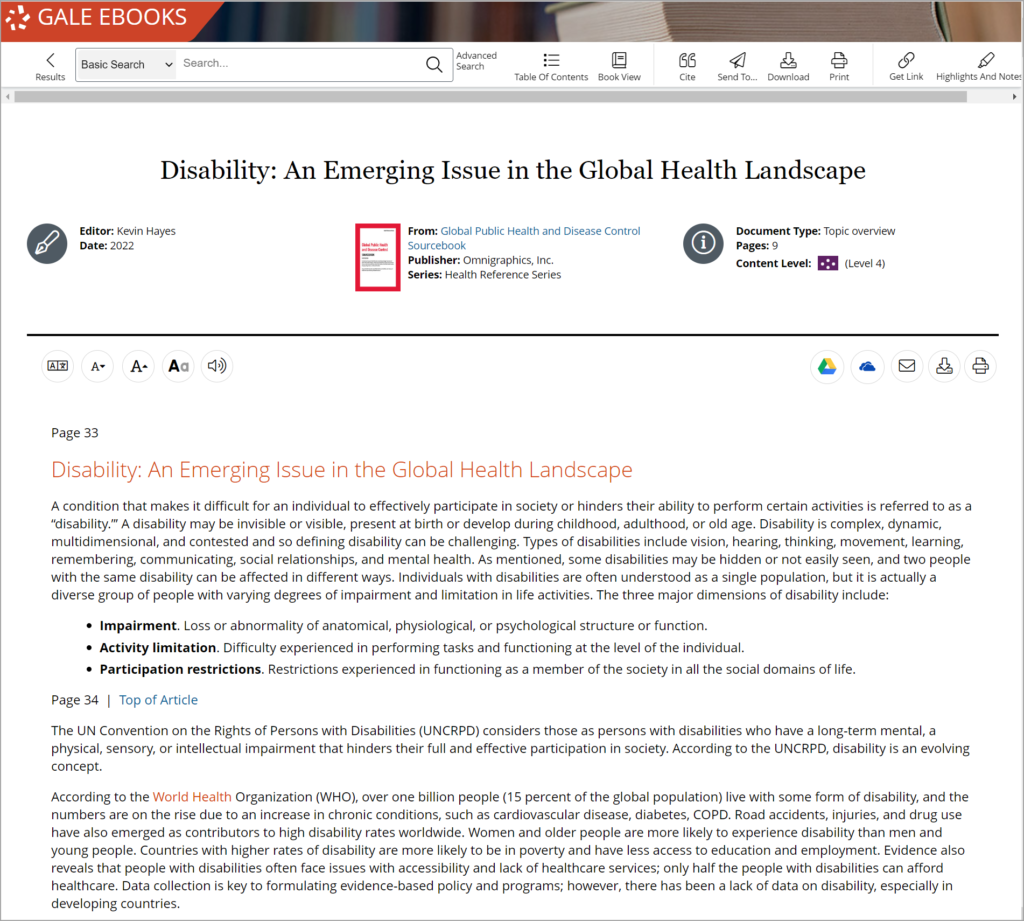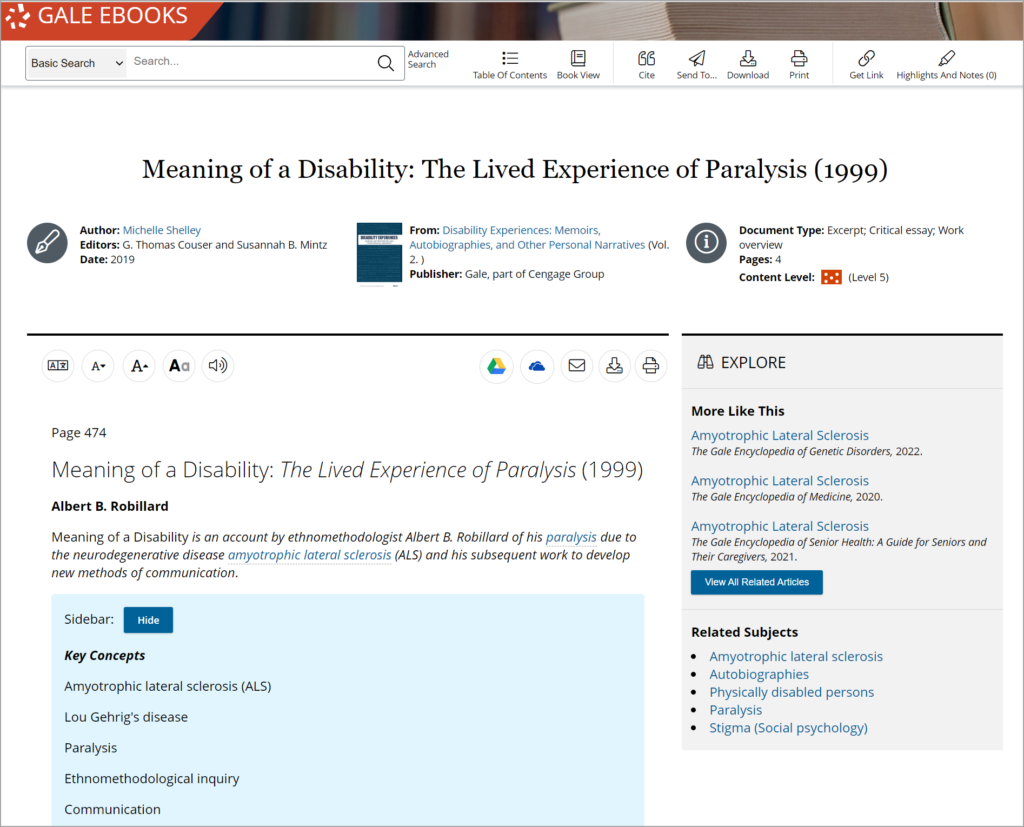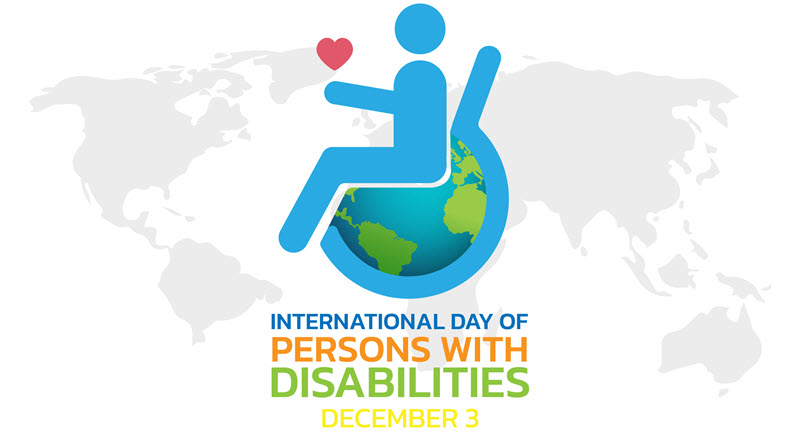| By Gale Staff|
International Day of Persons with Disabilities (IDPD) is a United Nations-designated day to celebrate and support individuals with disabilities. The holiday, originally named International Day of Disabled Persons, was approved in 1992 by the UN General Assembly. In 2008, the name was altered to place the word “person” in front of “disability,” an intentional and meaningful switch. Held on December 3rd each year, International Day of Persons with Disabilities is an important component of a global strategy to increase the inclusivity of all people.
Begin the Discussion
International Day of Persons with Disabilities is all about education; this is an opportunity to discuss everyday barriers for individuals with disabilities, barriers that most people don’t often consider. As an educator or student, it’s essential that you can define what’s captured by the word “disability.” This term can apply to physical, mental health, and emotional limitations that people face. Not every disability can be seen. You can find eBook titles on the Gale eBooks platform that introduce this multifaceted topic to researchers in a clear, approachable way, including ReadSpeaker technology and the ability to increase or decrease the font size. For example — roughly one billion people around the world have some form of disability, and nearly half of those individuals are over 60. Disabilities are hardly rare or shameful, and the best way to challenge those misconceptions is with accurate facts and education.

Add Value with Gale eBooks
In preparation for International Day of Persons with Disabilities, you can help students explore the topic more in-depth. With Gale eBooks, researchers can find a title written by and about the accomplishments of people with disabilities. Doing a basic keyword search will instantly bring users to hundreds of eBooks related to persons with disabilities. From voting rights to assistive technology to social security law to the LGBTQ experience to sports, you are immediately immersed in a huge digital library on the topic. With its advanced search tools, Gale eBooks allows you to focus your research on a specific area. Plus, with an extensive filter function, you can limit your results to those resources that best fit your student’s academic goals or your lesson plans. There are literally dozens of sources, including biographies, essays, case studies, and even poetry.

Leverage Accessibility Tools on the Gale eBooks Platform
When considering persons with disabilities, use the actual search tools and user interface of Gale eBooks as a real-time example. Educational technology tools can help eliminate academic barriers you may not have previously considered. To start, users can adjust the size of the text that appears on each page as well as change the font or the display colors, helping those with visual impairments. Plus, Gale eBooks has ReadSpeaker technology that provides a clear, text-to-speech option, including the ability to download audio files.
No matter your students’ pursuits, it can be difficult to know where to begin. When it comes to topics like people with disabilities, it’s especially pertinent that your research is accurate and up to date.
Is your library or institution not a Gale eBooks subscriber? Learn more about the platform and the titles or contact a rep today!

